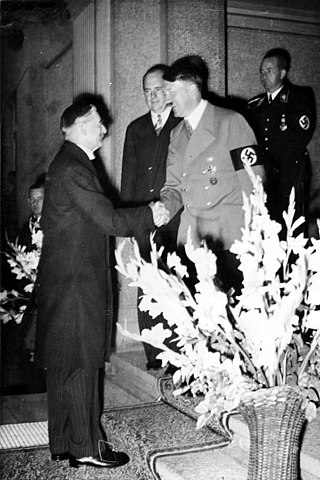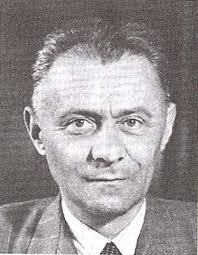| History of Czechoslovakia | ||||||||||||||||||||||||||||
|---|---|---|---|---|---|---|---|---|---|---|---|---|---|---|---|---|---|---|---|---|---|---|---|---|---|---|---|---|
 | ||||||||||||||||||||||||||||
| ||||||||||||||||||||||||||||
This is a list of years in Czechoslovakia . See also the History of Czechoslovakia. For only articles about years in Czechoslovakia that have been written, see Category:Years in Czechoslovakia.
| History of Czechoslovakia | ||||||||||||||||||||||||||||
|---|---|---|---|---|---|---|---|---|---|---|---|---|---|---|---|---|---|---|---|---|---|---|---|---|---|---|---|---|
 | ||||||||||||||||||||||||||||
| ||||||||||||||||||||||||||||
This is a list of years in Czechoslovakia . See also the History of Czechoslovakia. For only articles about years in Czechoslovakia that have been written, see Category:Years in Czechoslovakia.

Czechoslovakia was a landlocked state in Central Europe, created in 1918, when it declared its independence from Austria-Hungary. In 1938, after the Munich Agreement, the Sudetenland became part of Nazi Germany, while the country lost further territories to Hungary and Poland. Between 1939 and 1945, the state ceased to exist, as Slovakia proclaimed its independence and Carpathian Ruthenia became part of Hungary, while in the remainder of the Czech Lands, the German Protectorate of Bohemia and Moravia was proclaimed. In 1939, after the outbreak of World War II, former Czechoslovak President Edvard Beneš formed a government-in-exile and sought recognition from the Allies.

The Sudetenland is the historical German name for the northern, southern, and western areas of former Czechoslovakia which were inhabited primarily by Sudeten Germans. These German speakers had predominated in the border districts of Bohemia, Moravia, and Czech Silesia since the Middle Ages. Since the 9th century the Sudetenland had been an integral part of the Czech state both geographically and politically.

Appeasement, in an international context, is a diplomatic policy of making political, material, or territorial concessions to an aggressive power to avoid conflict. The term is most often applied to the foreign policy of the British governments of Prime Ministers Ramsay MacDonald, Stanley Baldwin and Neville Chamberlain towards Nazi Germany and Fascist Italy between 1935 and 1939. Under British pressure, appeasement of Nazism and Fascism also played a role in French foreign policy of the period but was always much less popular there than in the United Kingdom.

Czech National Social Party is a civic nationalist political party in the Czech Republic, that once played an important role in Czechoslovakia during the interwar period. It was established in 1897 by break-away groups from both the national liberal Young Czech Party and the Czech Social Democratic Party, with a stress on achieving independence of the Czech lands from Austria-Hungary. Its variant of socialism was moderate and reformist rather than a Marxist one. After the National Labour Party dissolved and merged with National Socialists in 1930, the party also became the refuge for Czech liberals. Its best-known member was Edvard Beneš, a co-founder of Czechoslovakia and the country's second President during the 1930s and 1940s.
This article presents a timeline of events in the history of the United Kingdom from 1930 AD until 1949 AD. For a narrative explaining the overall developments, see the related History of the British Isles. For narratives about this time period, see Interwar Britain, United Kingdom home front during World War II, Military History of the United Kingdom during World War II, Postwar Britain (1945–1979), Social history of Postwar Britain (1945–1979),
The European International Cup of Nations was an international football competition held by certain national teams from Central Europe & South Europe between 1927 and 1960. There were competitions for professional and amateur teams. Participating nations were: Italy, Austria, Czechoslovakia, Hungary, Switzerland, Poland, Romania, and Yugoslavia. Poland and Romania only competed in the amateur competition.
The vz. 24 rifle is a bolt-action carbine designed and produced in Czechoslovakia from 1924 to 1942. It was developed from the German Mauser Gewehr 98 line, and features a similar bolt design. The rifle was designed in Czechoslovakia shortly after World War I, to replace the Vz. 98/22, also a Czech derivative of the Gewehr 98. The vz. 24 featured a 590 mm (23.2 in) barrel which was shorter and considered more manageable than the 740 mm (29.1 in) Gewehr 98 barrel. The vz. 24 was chambered in 7.92×57mm Mauser like its predecessors.

Hubert Ripka was a Czechoslovak politician, journalist, historian, and author.

The Republic of Poland and Czechoslovakia established relations early in the interwar period, after both countries gained independence. Those relations were somewhat strained by the Polish–Czechoslovak border conflicts over Trans-Olza and Cieszyn in the early 1920s and late 1930s. Both countries joined the Allies during World War II. After the war they both fell into the Soviet sphere of influence. Poland, together with other Eastern Bloc countries, participated in the Warsaw Pact invasion of Czechoslovakia in 1968. Relations between the two countries were nonetheless rather amicable, but became somewhat strained in the aftermath of the rise of the Solidarity movement in Poland in 1980 and 1981, improving again afterwards.
Mike Matthew Buckna was a Canadian amateur ice hockey player and coach of Slovak origin. Between stints as a player with the Trail Smoke Eaters, Buckna was instrumental in developing hockey in Czechoslovakia throughout the 1930s and 1940s. Buckna established the sport at the grassroots level while coaching the Czechoslovak national team to European and World Championship titles, as well as a silver medal at the 1948 Olympics.